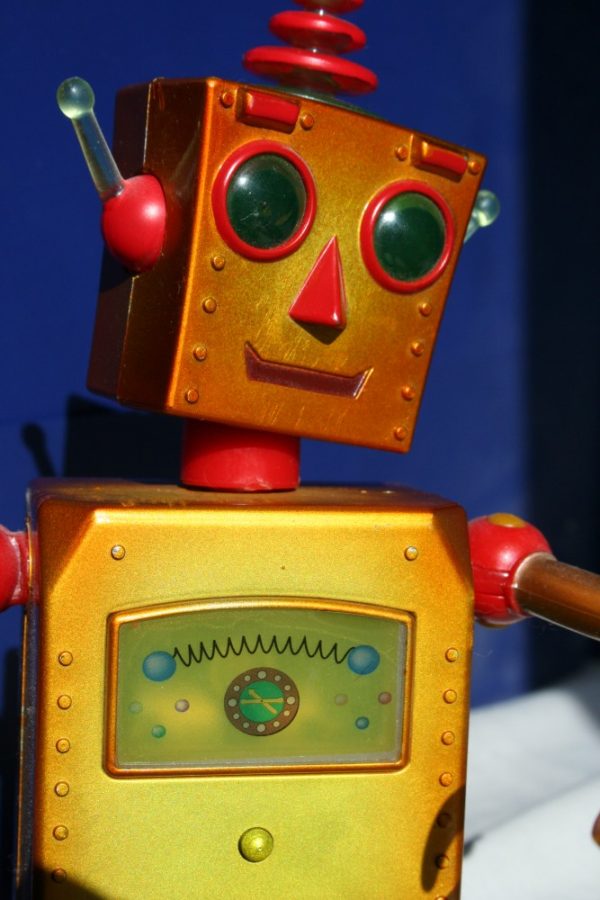The rise of artificial intelligence in our society fascinates me, especially learning how robotics are slowly beginning to be implemented into companies, vastly changing the efficiency of human work.
The University of Arizona’s College of Science is exploring these issues of advancing technology with a series of lectures titled “Humans, Data and Machines.” I was excited to learn about these talks from local media, and knew I had to attend so I know when the machines will be taking over.
The intended purpose of the talks is for UA professors to discuss how AI is influencing the human race, but also “raising new philosophical and ethical questions,” as explained by their online overview of the series.
When I walked up the stairs into Centennial Hall, I was astonished to see a sea of heads. No seat looked open. The usher asked if I was alone, which I was, and pointed toward the front row. I rushed down the aisle to snag a seat before the lecture began. The lights dimmed and a man introduced the entertainment: two guitarists, Noah Weig-Pickering and Ignacio Mondaca Garcia.
Next came the speaker for the night, Mihai Surdeanu, associate professor of computer science at the UA. He began by assuring us that the scary stuff we see about robots taking over the world is not going to happen, at least not for a long time.
I was upset.
Surdeanu’s lecture, called “The Minds of Machine,” discussed how robots think and filter through vast amounts of data. It was interesting to see a robot’s thought process and how the human brain is insanely difficult to replicate.
RELATED: What the hack? Hack Arizona brings out UA students, Tucson tech industry
Surdeanu used an example of the word “bass,” which has several meanings. Humans are able to see or hear context to conclude whether the object is a bass guitar or a bass fish. However, robots are unable to understand. Robots are biased, compiling natural assumptions to asses its settings.
For example, a person cooking in the kitchen may be assumed by AI to be a woman based on contextual information and traditional roles, but in reality that person may be a man.
One of the most interesting points Surdeanu made was when he explained how humans interpret written information compared to robots. If a person wanted to study brain cancer, they would have thousands, if not millions, of scholarly articles to read from. A person can read a few articles in one sitting until they lose interest. They are able to pick and choose information that applies to them.
Robots are subject to missing potential information, but then again they can go through millions of databases, sorting and picking the most important and relevant information in just a few hours.
After the hour-long talk, audience members had the chance to talk to the speaker. The lecture was similar in format to a TED talk, with lots of important information given in a somewhat informal setting. The visuals and simplified explanations made the difficult subject material easier to understand.
Overall, I found it interesting and will probably go again. The series continues each week through the end of February. All talks can be found at uascience.org.
Follow Daily Wildcat on Twitter.









